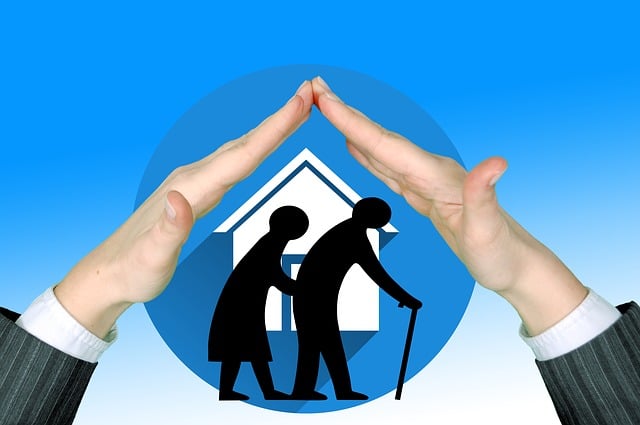Rhode Island's rising lawsuits by elderly sexual assault victims highlight the urgency of care facility negligence. Central Falls leads with enhanced surveillance, background checks, and staff training, supported by dedicated elderly sexual assault attorneys. Legal action holds institutions accountable, results in penalties & changes, fostering a culture of safety for seniors across the state. Understanding legal rights empowers seniors and their families to prevent and address elder abuse, including sexual assault. Attorneys play a crucial role in navigating laws, deterring abuse, and providing justice.
In Rhode Island, addressing negligence in elderly care facilities is crucial to protect vulnerable seniors. This article delves into the various facets of this pressing issue, starting with identifying neglect at bustling care homes, including instances of elderly sexual assault. We explore the role of legal action in holding facilities accountable and the rights and resources available for victims. Furthermore, we highlight Central Falls’ proactive approach to enhancing safety practices and empowering families through awareness and support. For those seeking justice, an experienced elderly sexual assault attorney in Rhode Island can provide guidance.
Uncovering Negligence in Elderly Care: A Rhode Island Perspective

In Rhode Island, uncovering and addressing negligence in elderly care facilities is a pressing issue. Cases of abuse, including sexual assault, have prompted a closer look at the systems in place to protect vulnerable seniors. The state has seen an increase in lawsuits filed by elderly sexual assault victims, highlighting the need for better oversight and accountability in long-term care settings. These legal actions serve as a catalyst for change, pushing facilities to strengthen their safety protocols and employee training programs.
Central Falls, a city known for its proactive approach, is at the forefront of these efforts. Local initiatives focus on enhancing surveillance systems, implementing rigorous background checks for staff, and providing comprehensive training on recognizing and reporting abuse. With the support of dedicated elderly sexual assault attorneys in Rhode Island, these measures aim to not only prevent future incidents but also ensure that victims receive the justice and care they deserve.
The Role of Legal Action in Holding Facilities Accountable

In addressing negligence in elderly care facilities, legal action plays a crucial role in holding institutions accountable. When instances of abuse or neglect come to light, an elderly sexual assault attorney in Rhode Island can initiate legal proceedings against the responsible parties. These actions not only seek justice for the victims but also serve as a deterrent, sending a clear message that such misconduct will not be tolerated.
Legal battles can lead to significant consequences for negligent facilities, including financial penalties and changes in their operational practices. This process empowers elderly individuals and their families, ensuring that care providers maintain high standards of safety and respect. By engaging the legal system, victims and their advocates contribute to a culture of accountability, ultimately enhancing the quality of life for residents in elderly care facilities across Rhode Island.
Protecting Vulnerable Seniors: Legal Rights and Resources

In addressing negligence in elderly care, protecting vulnerable seniors involves understanding their legal rights. Seniors in Rhode Island have specific protections in place to ensure safe and respectful treatment. An elderly sexual assault attorney can help navigate these laws, which are designed to deter abuse and provide recourse for victims. These legal resources empower seniors to stand up for themselves and hold facilities accountable when their care falls short.
Knowing one’s rights is crucial for preventing and addressing elder abuse, including sexual assault. Seniors or their families should be aware of state regulations regarding facility standards, staff training, and reporting procedures. An elderly sexual assault attorney can guide them through these processes, ensuring that justice is served and the safety of all elderly residents in care facilities is prioritized.
Central Falls: Implementing Safer Practices for Resident Safety

In response to recent concerns, Central Falls is taking proactive measures to enhance safety within its elderly care facilities. The city’s primary focus lies in implementing comprehensive practices aimed at preventing and addressing negligence, particularly regarding resident safety. By prioritizing these measures, Central Falls aims to create an environment that not only safeguards the vulnerable but also discourages potential incidents of elder abuse and neglect.
One critical aspect of this initiative is the strengthening of protocols for staff training and supervision. This includes mandatory sexual misconduct prevention programs tailored to address issues specific to elderly care settings. With the help of legal experts, such as experienced elderly sexual assault attorneys in Rhode Island, Central Falls ensures that staff are equipped with the knowledge to recognize and report suspicious behavior. These efforts underscore the city’s commitment to holding facilities accountable for the well-being of their residents, fostering a culture of transparency, and promoting justice within the elderly care sector.
Empowering Families: Awareness and Support for Victims

In the fight against negligence in elderly care, empowering families plays a pivotal role. Many cases of abuse and neglect go unreported due to fear or shame, especially when it comes to sensitive issues like elderly sexual assault. Rhode Island residents, armed with knowledge, can make a difference. By raising awareness about their rights and available resources, families become advocates for their loved ones, ensuring better care and accountability.
An elderly sexual assault attorney in Rhode Island is a valuable asset in this process. They provide legal guidance, supporting victims and their families through complex legal procedures. This not only helps secure justice but also serves as a powerful deterrent, encouraging facilities to uphold higher standards of care and respect for the elderly.





